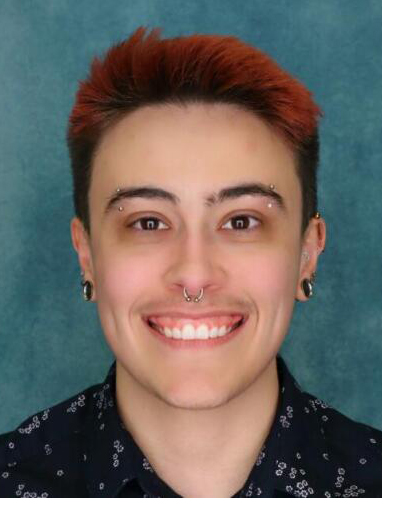Student Spotlight: Hunt Fellowship supports Z Ferguson's dissertation studying sexual harassment prototypes
 When UW Psychology PhD candidate Z Ferguson was awarded a summer Hunt Fellowship, it gave them the opportunity to focus on completing their dissertation.
When UW Psychology PhD candidate Z Ferguson was awarded a summer Hunt Fellowship, it gave them the opportunity to focus on completing their dissertation.
Ferguson, whose primary adviser is Cheryl Kaiser (and who is co-advised by Sama Ahmed and works in Yuichi Shoda’s lab) is studying how stereotypes of nonbinary people and women affect those populations in different contexts.
Ferguson’s dissertation centers on a set of three projects studying the perceptions and responses to non-protypical women claiming sexual harassment. People – particularly in western, gendered societies – associate similar prototypes between women and sexual harassment victims, such as that they’re feminine, white, young, or attractive, Ferguson says.
“The stereotype of a sexual harassment victim resembles the same traits of a stereotype of a woman,” they said. “And I study how women who do not fit those characteristics, who differ and deviate from those in some way, are less likely to be believed. They’re more likely to be doubted when they claim sexual harassment.”
Z went into their undergraduate education thinking they’d major in physics, since they enjoyed both physics and math. But they soon realized they were “very bad” at both. They came to understand, however, that what they liked about math was solving riddles and coming to a better understanding of how the world works. “I realized I could also understand how systems in the world work if I understand the people in those systems, and so I got interested in psychology.”
Starting out in organizational behavior, they came to a crossroads for graduate school, needing to decide between business or psychology programs. “I got into both, and I had to make a decision at that point,” they said. “What type of academia, what type of culture, do I want to be in? What kind of questions do I want to ask? It was a difficult decision, but I ended up picking a psych program to look at more foundational research about identity as opposed to working only in organizational contexts – although I do hope that the work that I do will be able to be applied to organizational contexts, and in varieties of contexts.”
“It’s been a long haul,” Z said of the five years spent earning their PhD. “Each year, I feel like a different person. And it has not been easy, but I see the light at the end of the tunnel. I’m coming to the end. It’s exciting.”
Even so, Z noted they’ll be graduating in a time of uncertainty, and is considering moving out of the U.S. “It’s kind of a nerve-wracking time to be doing the research with everything I study being banned, and the funding that’s getting cut,” they said.